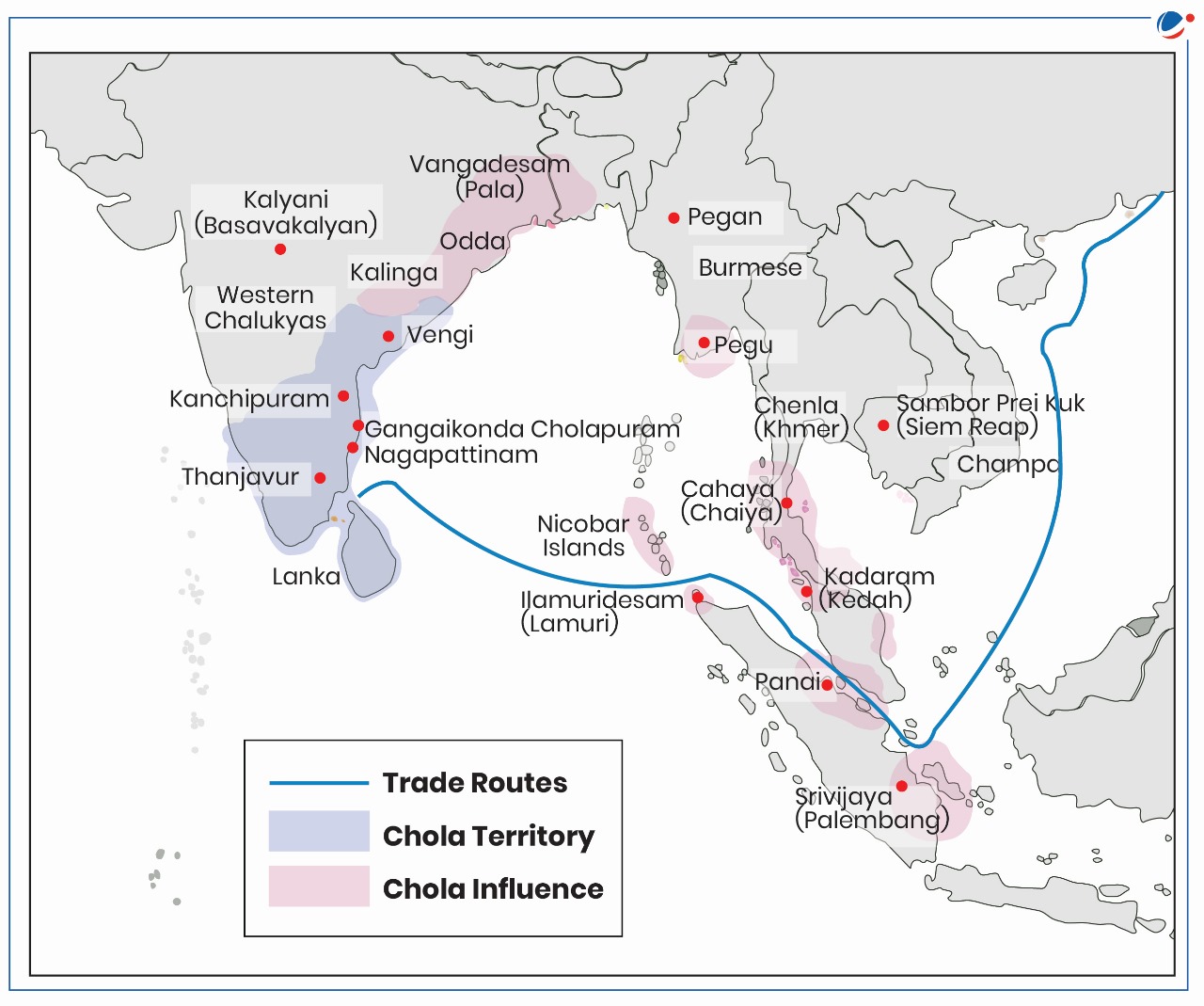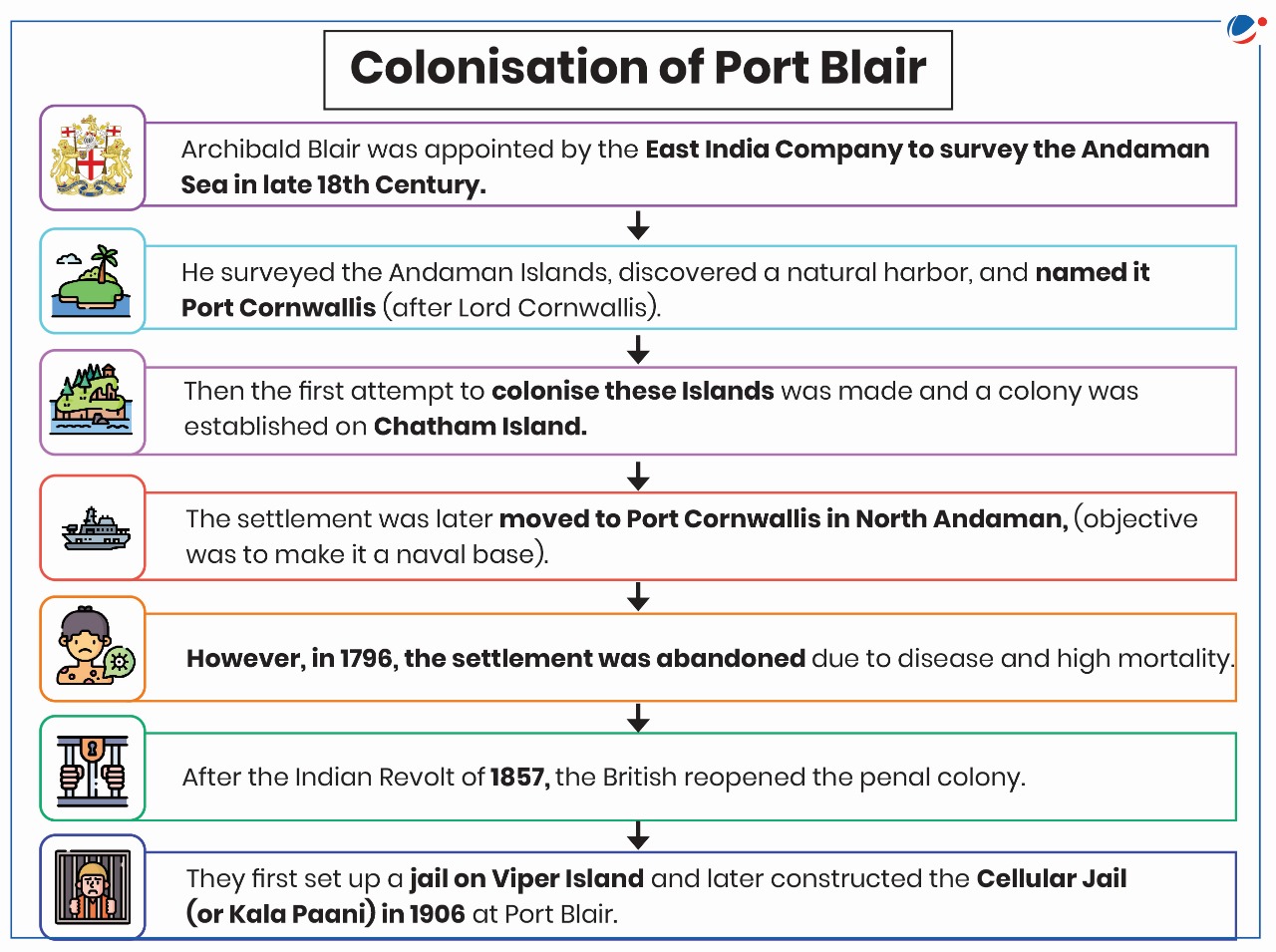Why in the news?
Port Blair, the capital of the Union Territory Andaman and Nicobar (A&N) Islands, is renamed as Sri Vijaya Puram.
More on the news
- Ministry of Home Affairs (MHA) has announced renaming of Port Blair as Sri Vijaya Puram.
- However, for renaming villages, towns/cities, railway stations etc. of states, MHA has issued guidelines.
- If any proposal is received from any State fulfilling these guidelines, this Ministry accords its 'No Objection' to such change of name. Thereafter, the state government issues gazette notification regarding name change.
- However, for renaming villages, towns/cities, railway stations etc. of states, MHA has issued guidelines.
- Purpose of renaming: The decision has been taken to free the nation from colonial imprints
- While the name 'Port Blair" has a colonial legacy, Sri Vijaya Puram symbolises the victory achieved in India's freedom struggle and the A&N Islands' unique role in it.
Sri Vijay Puram and its cultural importance
- Srivijaya was the ancient name of an empire that had its base in Sumatra, with influence across South East Asia.
- It was also instrumental in the expansion of Buddhism.
- The empire was supposed to have declined around the 11 century AD after a series of naval raids by the Cholas on its ports.
- Chola invasion of Srivijaya was a unique event in the history of India and "its otherwise peaceful relations with the states of Southeast Asia which had come under India's strong cultural influence for about a millennium."

Colonial legacy of Port Blair
The city of Port Blair, named after Archibald Blair, a naval surveyor and lieutenant in the Bombay Marine, is the entry point of the A&N Islands.
Nationalist Movement at cellular jail in Port Blair.

Nationalist Movement at cellular jail in Port Blair
At present, the cellular jail has been transformed into a national memorial and museum that showcases the stories of the incarcerated heroes and the hardships they endured. Some of its important key events are as follows:
- Saga of the heroic freedom struggle: Freedom Fighters including Batukeshwar Dutt, Barindra Kumar Ghosh, Sachindra Nath Sanyal, and Vinayak Damodar Savarkar, were imprisoned in cellular jail.
- Vinayak Damodar Savarkar wrote 'The Indian War of Independence, 1857' in cellular jail.
- Mahavir Singh, Mohan Kishore Namadas and Mohit Moitra, led a hunger strike within the prison in 1933 to address the abysmal living conditions within the jail
- Assassination of Lord Mayo: Sher Ali assassinated Viceroy Lord Mayo in 1872. For this, Sher Ali was hanged to death at the Viper Gallows.
- Hoisting of national tricolor by Netaji: Japanese occupation of Port Blair took place during the Second World War (1942 to 1945). They gave it to Provisional Indian Government under Subhas Chandra Bose.
- On 30th December 1943, Netaji Subhas Chandra Bose hoisted the Indian tricolor for the first time on Indian soil, near the Cellular Jail, to proclaim independence.
Andaman and Nicobar Islands
Once a Chola Empire naval base, these islands are now key to India's strategic and developmental future, reflecting their unique historical and contemporary importance. |






